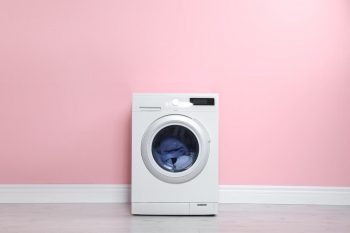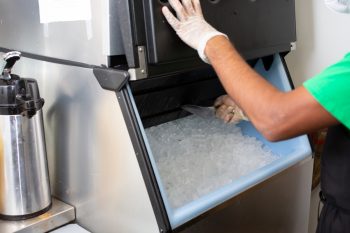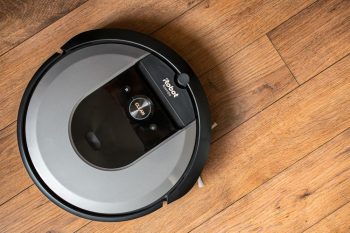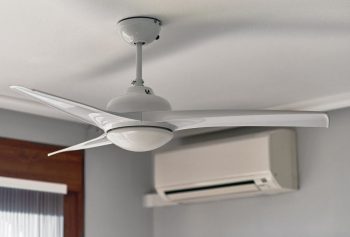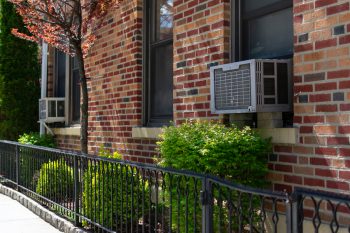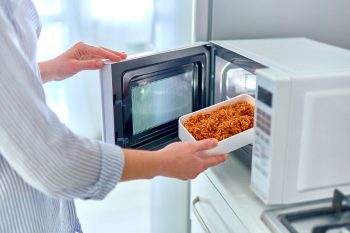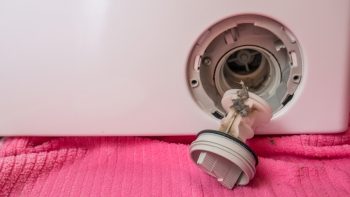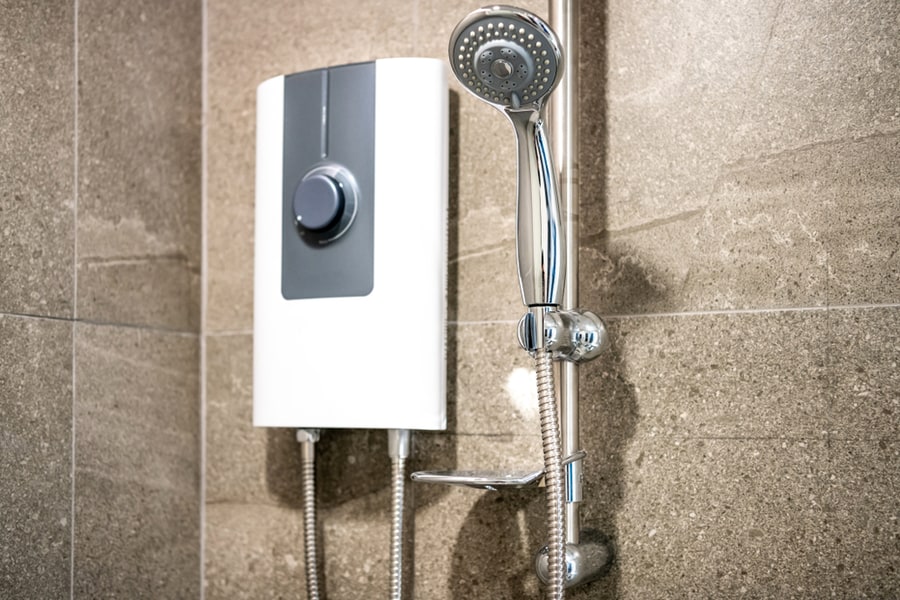
Tankless water heaters give homeowners a great way to save money, energy, and space. But like any other appliance, tankless water heaters can experience issues.
Are you having issues with your tankless water heater, such as inconsistent hot water temperature or unexpected shutdowns? These common signs of problems must be addressed as soon as possible.
In this post, we’ll explore the most common issues that can arise with tankless water heaters and provide valuable information on how to identify and solve them.
From clogged filters to sediment buildup, we’ll cover it all. Please keep reading to ensure your tankless water heater runs at its best and avoid costly repairs.
Here’s a quick overview of the most common issues and how to handle them:
Clogged filters can cause low water pressure and lead to shutoff. Clean or replace your filters as recommended in your user manual. Sediment buildup can clog the heat exchanger and reduce efficiency.
Flush the heater according to the manufacturer’s instructions or call a professional.
Remember to schedule regular maintenance. Use a water softener if necessary, and choose the right size and flow rate for your household’s hot water needs.
Be aware of any unusual smells or noises from the unit, as they indicate various issues.
Blockages in the exhaust pipes can cause the unit to shut down or operate less efficiently. Keep the area around the tankless water heater clean and clear of debris. Lastly, a recirculation pump can help reduce the cold water sandwich effect.
By following these tips, you can ensure your tankless water heater runs at peak efficiency. If you’re having trouble or need help diagnosing an issue, it’s best to call a professional.
Don’t wait until it’s too late — catch the signs before it becomes a major issue.
7 Common Tankless Water Heater Issues & How To Fix Them
Suppose you are tired of dealing with unexpected cold showers and sky-high energy bills. It’s time to get familiarized with the most common tankless water heater issues and how to fix them.
1. Insufficient Hot Water
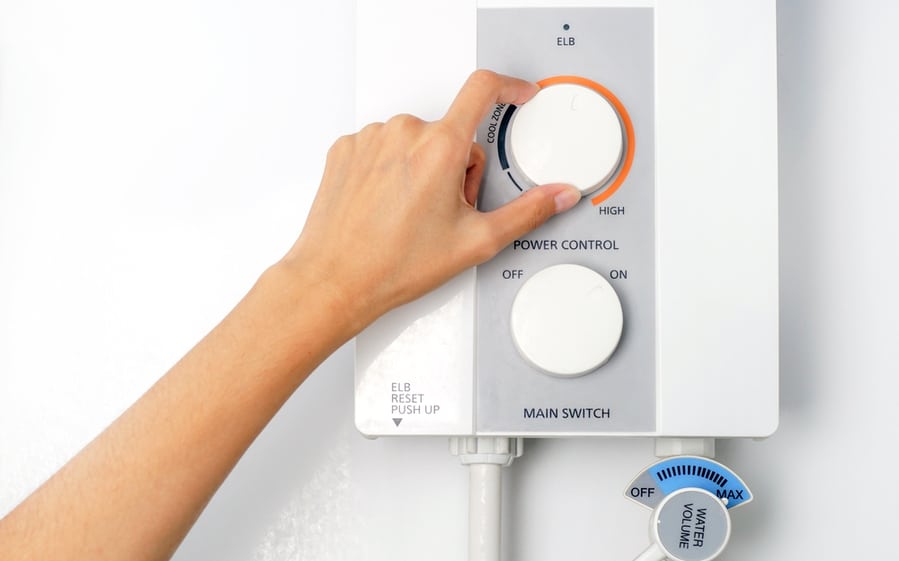
When a tankless water heater is not producing enough hot water, it can be a frustrating and inconvenient experience. One potential cause of this issue is the combustion shutdown.
Tankless water heaters are equipped with sensors that detect when the unit is overheating or experiencing excess exhaust and will automatically shut down to prevent damage. This can lead to sudden loss of hot water.
Another common cause of insufficient hot water from the tankless water heater is the mineral buildup on the heating element. Hard water contains high levels of minerals such as calcium and magnesium, which can accumulate on the heating element over time.
This buildup can reduce the unit’s efficiency and lead to lukewarm water instead of hot water.
Lastly, it may also be that the tankless water heater doesn’t have enough capacity to meet the household’s hot water needs. Choosing a tankless water heater with the right size and flow rate is important to match the household’s needs.
How To Fix
There are several potential causes of insufficient hot water from the tankless water heater, including; a combustion shutdown, mineral buildup, and an under-sized unit.
It’s important to identify the root cause of the problem and take appropriate action to resolve it.
2. Inconsistent Hot Water Temperatures
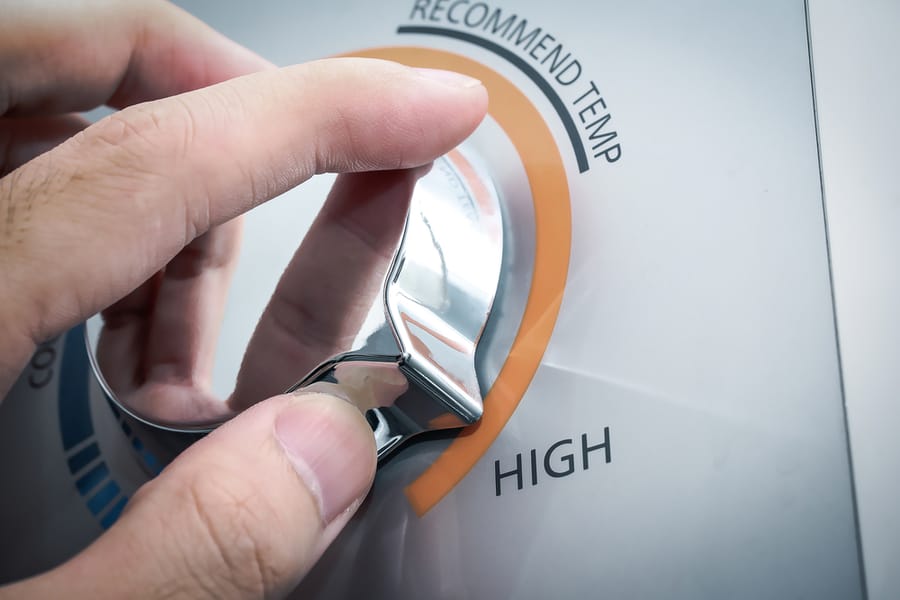
If you’re experiencing water from your heater, that’s too cold or too hot. It could be a sign of an issue with your tankless water heater. Inconsistent hot water temperatures can be caused by several factors, including:
- A Malfunctioning Thermostat: The thermostat controls the temperature of the hot water, and if it’s not working correctly, it can cause the water to be too hot or cold.
- Scaling or Mineral Buildup: Hard water can leave mineral deposits on the heating elements of the tankless water heater, reducing its efficiency and causing inconsistent hot water temperatures.
- Clogged Filters: If the filters on your tankless water heater become clogged, they can restrict the water flow and cause the water to be too cold.
How To Fix
To resolve inconsistent hot water temperature issues, you may need to have your water heater serviced or cleaned. It’s important to call a professional plumber to diagnose the issue and recommend the best solution.
Sometimes, a water softener may be necessary to remove the mineral buildup and prevent it from happening again.
Clean your tankless water heater at least once a year to prevent mineral buildup and ensure it’s running at peak efficiency.
3. Leaking Tankless Water Heater
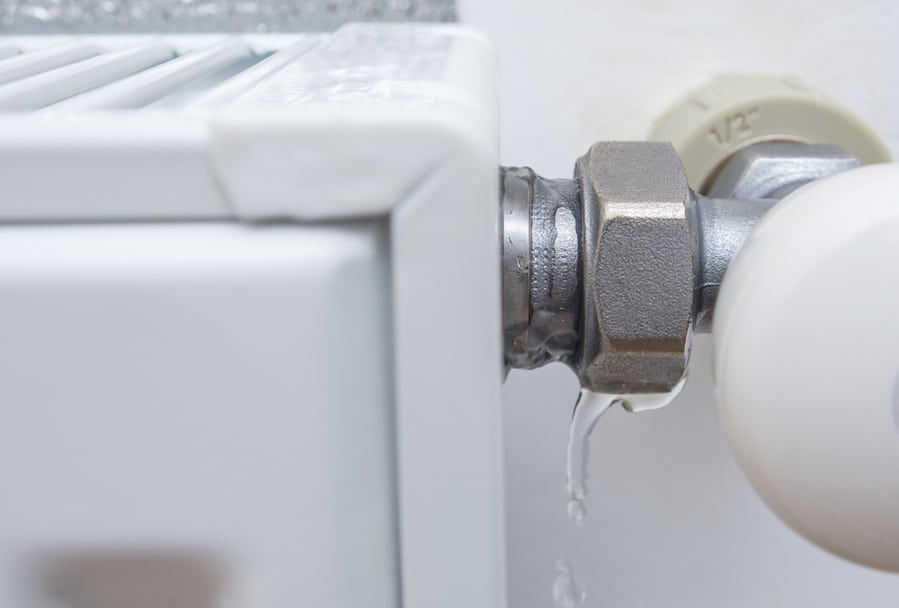
A leaking tankless water heater can be a serious problem and should be addressed immediately. Leaks can occur for several reasons, including:
- Corroded or Rusted Pipes: Over time, the pipes connected to the water heater can become corroded or rusted, causing leaks.
- Loose Connections: If the water and gas connections to the water heater are not tightened properly, they can cause leaks.
- Cracked Heat Exchanger: The heat exchanger is a crucial component of the tankless water heater, and if it becomes cracked, it can lead to leaks.
How To Fix
Suppose you suspect a leak in your tankless water heater. It’s important to turn off the water and gas supply to the unit and call a professional plumber to inspect the system.
Leaks can cause damage to the unit and can be dangerous if not properly addressed. So, it’s better to call a plumber; he will be able to identify the exact cause of the leak and recommend the best course of action.
4. Flame or Ignition Failure
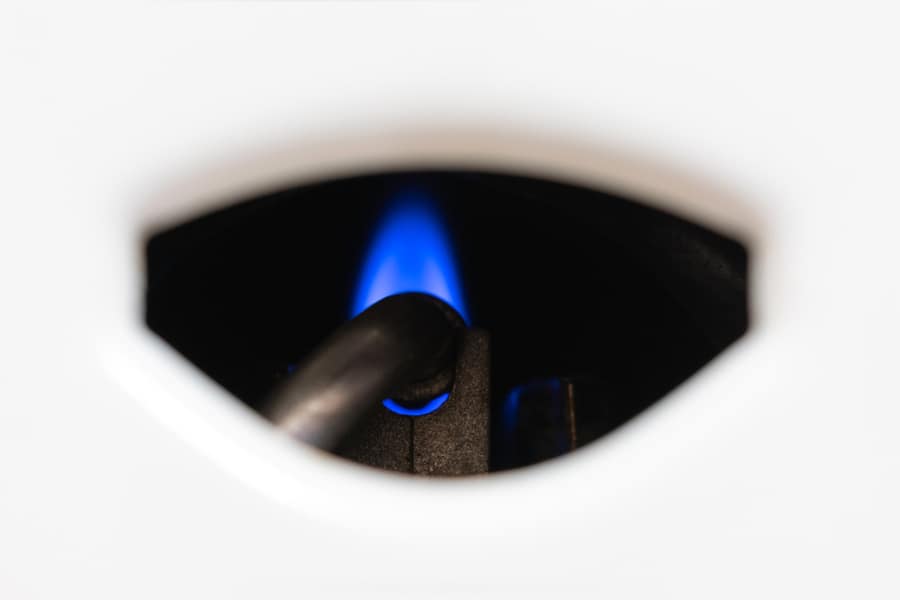
If your tankless water heater is not producing hot water, it could result from an ignition or flame failure. Common signs of an ignition or flame failure include;
- No Hot Water: If the flame or ignition system is not working properly, the water will not heat up.
- Error Codes: Many tankless water heaters have diagnostic codes that can indicate a problem with the ignition or flame.
- Gas Smell: If there is a flame or ignition failure, you may smell gas from your tankless water heater.
How To Fix
Ignition and flame failures can be dangerous and should be addressed by qualified technicians. If you suspect this issue in your water heater, it’s important to turn off the gas supply and call a professional plumber to inspect the unit.
The plumber will diagnose the issue and make necessary repairs or replacements to get your tankless water heater back to working properly.
It’s always a good idea to schedule regular maintenance for your tankless water heater to ensure it runs at peak efficiency and identify and address any potential issues before they become major problems.
5. Cold Water Sandwich Effect
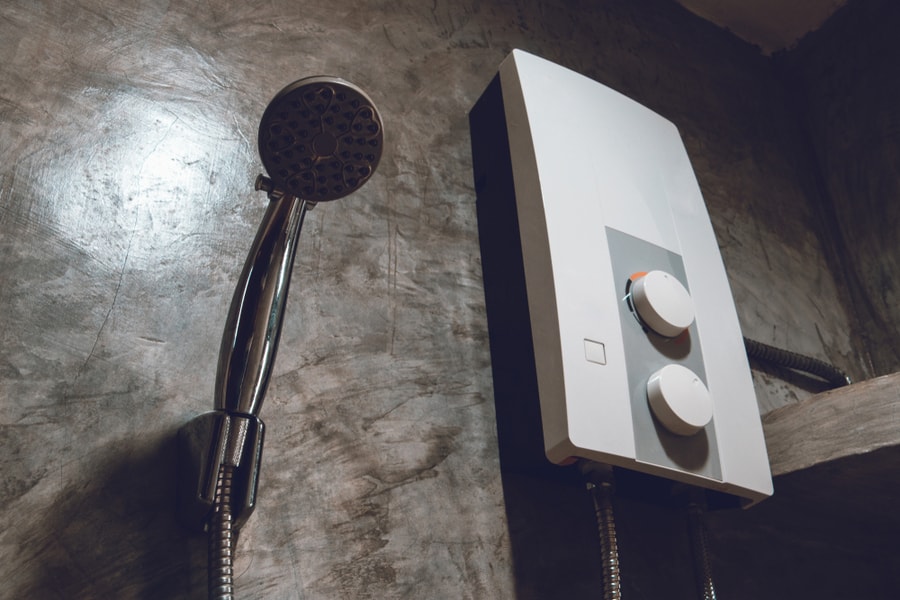
The cold water sandwich effect is when the hot water supply is briefly interrupted by a cold water flow. This can happen when multiple hot water fixtures are used simultaneously, like in a big family.
This occurs because the tankless water heater is designed to provide hot water on demand rather than storing hot water in a tank.
When multiple fixtures are in use, the demand for hot water exceeds the unit’s capacity, causing it to shut down temporarily. This result in a burst of cold water followed by a return of hot water.
How To Fix
To prevent or minimize the cold water sandwich effect, choosing the right size tankless water heater for your household’s hot water needs is important.
You can also add a recirculation pump to your system, keeping the hot water in the pipes and reducing the cold water sandwich effect.
6. Blockage in Exhaust Pipes
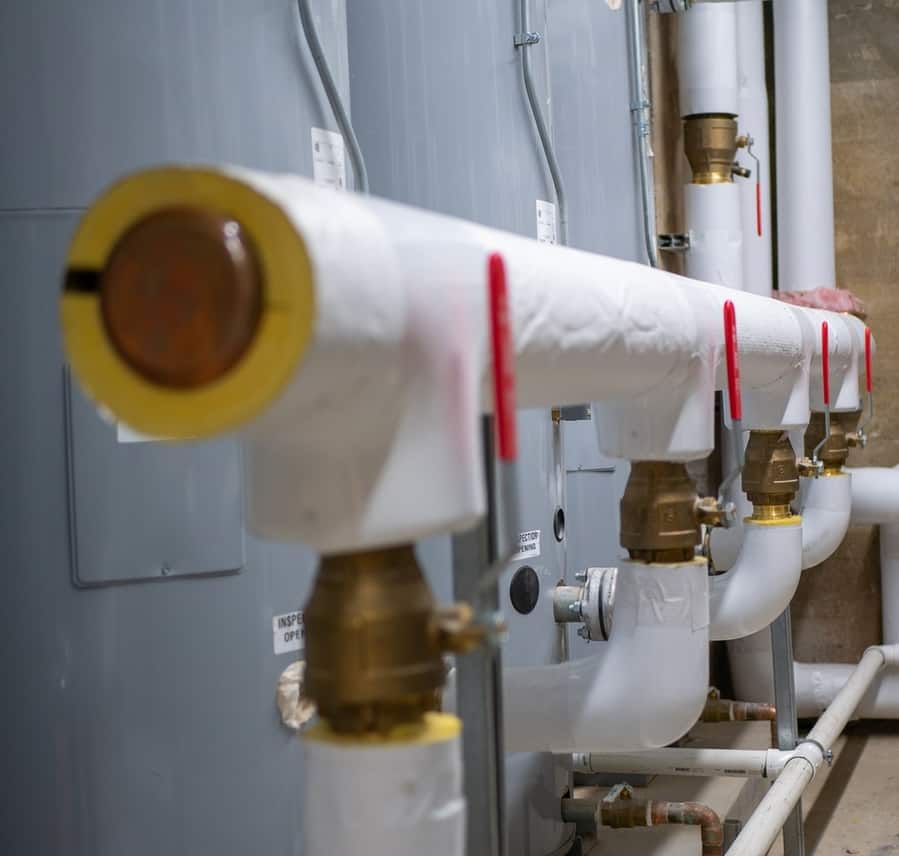
Blockages in the exhaust pipes of a tankless water heater can cause a loss of hot water and other issues. These blockages can occur due to a buildup of lint, dust, or debris in the exhaust pipes or from animals nesting in the pipes.
The blockage can restrict the flow of exhaust gases, causing the unit to shut down or operate less efficiently.
Common signs of blockages in the exhaust pipes of a tankless water heater include:
- No hot water or decrease in hot water flow.
- Strange noises from the unit, such as whistling or gurgling.
- A strong smell of exhaust gases.
- A decrease in the unit’s overall performance.
How To Fix
To prevent blockages in the exhaust pipes, Keep the area around the water heater clean and debris free. Regular maintenance, like cleaning the air filters and having a professional inspect the unit, can also help prevent blockages.
If you suspect a blockage, clean it yourself or call a professional plumber to inspect and clear the pipes safely.
7. Unusual Smells and Noises

Unusual smells and noises from your tankless water heater indicate various issues. Strange noises such as whistling or gurgling indicate blockages in the exhaust pipes or a problem with the venting system.
A strong odor of natural gas or propane indicates a gas leak and should be addressed immediately by turning off the gas supply to the unit and calling a qualified plumber.
Other potential causes of unusual smells and noises from a tankless water heater include a buildup of sediment in the unit, a malfunctioning burner, or a clogged air filter.
These issues can reduce the unit’s efficiency and require professional maintenance or repairs.
How To Fix
It’s important to be aware of any unusual smells or noises from your tankless water heater and address them promptly to prevent more serious problems from developing.
Regular maintenance, like cleaning the air filters and flushing the unit, can also help prevent or minimize the issue. Some parts may need to be replaced or repaired to get your tankless water heater back to working properly.
- Always turn off the gas supply before performing any maintenance on your tankless water heater.
- It is recommended to have the unit inspected and serviced by a professional plumber, as they have the experience and expertise to properly diagnose any issues.
Conclusion
Maintaining a tankless water heater requires attention to its performance and early detection of issues. We’ve discussed some of the most common problems that can arise with tankless water heaters and provided valuable information on how to solve them.
We’ve tried to cover everything from inconsistent hot water temperatures and unexpected shutdowns to clogged filters and sediment buildup. It’s important to be aware of warning signs and take action to ensure your tankless water heater runs at its best and avoid costly repairs.
We hope this blog post has been informative and helpful and that you feel more equipped to handle any issues with your tankless water heater.
If you have further questions or need assistance, don’t hesitate to contact us! We are always here to help.

